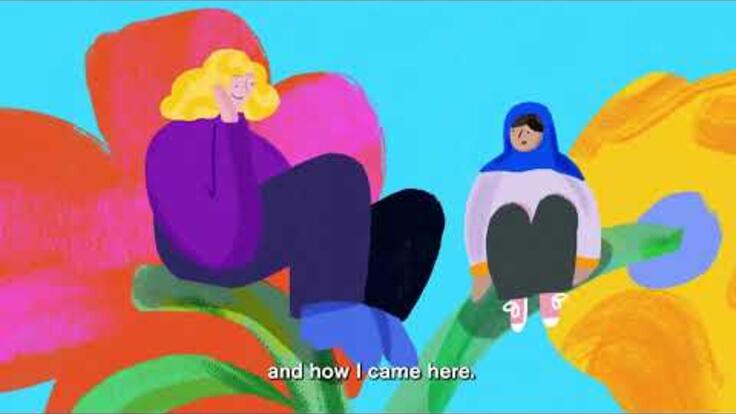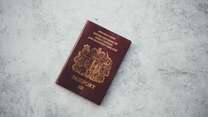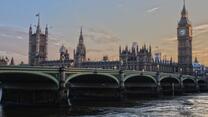The International Rescue Committee works to provide support to refugees, asylum seekers and vulnerable migrants in the UK. We help new arrivals to navigate local systems and services like healthcare and education, help them to find employment and gain the skills that will allow them to prosper in their new communities.
Donate to the IRC to support refugees in the UK
The International Rescue Committee (IRC) provides specialist support for refugees, asylum seekers, and other vulnerable migrants.
Our integration support helps new arrivals navigate local systems and services like healthcare and education. We provide employment support including Job Readiness training, the Refugee Employability Programme and supporting refugees into health and social care roles. Find out more about how the IRC supports refugees in the UK.
The IRC’s Healing Classrooms and Healing Spaces programmes also deliver training sessions for teachers and support staff across the UK to provide safe and supportive learning environments for refugee students.
At the IRC, our programmes support people from Syria, Afghanistan, Ukraine, Iraq, Sudan and beyond.
Through our work, we've witnessed countless inspiring stories of people overcoming adversity and thriving in their new communities.
Saghar, a journalist who had to flee her home in Afghanistan, arrived in the UK in 2021 and graduated from the IRC’s Leadership course. Saghar is now pursuing her dream of becoming a fashion designer in Liverpool.
Zahra, a former TV news anchor from Afghanistan, is rebuilding her life in High Wycombe while advocating for women's rights. Zahra graduated from both the IRC’s Orientation for Newcomers and Leadership courses in October 2022.
Halyna, who fled Ukraine with her children in 2022, took part in the IRC’s Orientation and Leadership courses and is now helping other refugees overcome employment barriers in London.
These stories, and countless more, highlight the strength and determination of our clients, as well as the positive impact of the IRC's support in helping them rebuild their lives and achieve their goals.
In the UK, the IRC is urging the government to take action on five key fronts:
- Upholding the right to seek safety
- Scaling up safe routes for refugees
- Supporting refugees to rebuild their lives in the UK
- Supporting an immediate ceasefire, the release of all hostages, and an increase in the amount of humanitarian assistance provided to people across the whole of Gaza
- Increasing funding for countries facing crisis
Read the five ways Prime Minister Keir Starmer can support people affected by conflict and crisis.
45%
of clients receiving employment support from the IRC have reached an employment goal of receiving a job offer, being promoted, starting a volunteer placement or enrolling on a vocational training course.
The IRC provides Job Readiness Training to refugees who are keen to start their careers in the UK. The course covers every aspect of employment in the UK, from how to write a CV and cover letter to interview techniques.
More about our employment support2,600+
Educators reached since our Healing Classrooms programme launched in May 2022.
The Healing Classrooms programme offers free training to educators on how to offer children a safe and predictable place to learn and cope with the consequences of conflict and displacement.
Learn more about Healing Classrooms1,522
refugees and asylum seekers received employability, English language, integration and/or wellbeing support in 2024.
Our UK programmes help people fleeing from war, violence and persecution in countries like Syria, Ukraine, Afghanistan, Sudan and Iraq.











